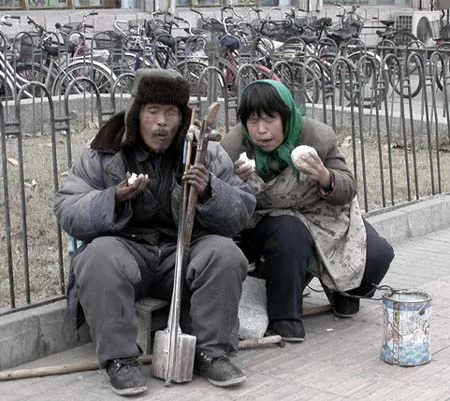China: a rhinoceros on a roller skate
March 14, 2018
BACK IN 2011, the young and recklessly brave Russian opposition leader Alexei Navalny was involved in a debate with an obscure member of the Duma by the name of Yevgeny Fyodorov. During the debate, the popular Navalny denounced Fyodorov's ruling United Russia Party as "the party of crooks and thieves".
And thus, a meme was born, one that even Vladimir Putin himself was unable to crush. His acolytes and factotums have done a very thorough job in creating a sort of synthetic pseudo-democracy, with its pseudo-free press and its pseudo-dissent, but when it comes to a meme, Putin just had to take it on the chin. And so, the ruling siloviki created a pseudo-opposition party instead, which incorporated the "crooks and thieves" motif.
All this is merely to say that dictatorships are terrified of the Internet, and for good reason. China itself is scared to death of the suspiciously satirical, the viral, the semantically fluid. Anything it cannot control, it fears. Anything it controls, it fears losing control. And so, the stronger it gets, the more vulnerable it is to the jujitsu move, to the assymetrical warfare conducted by thousands of netizens sniggering at their mobile phones.
Today, the Chinese internet is no longer on fire but it still stinks of cinder and smoke after the events of the last few days. Liang Xiangyi, an attractive young reporter symbolically attired in blue, was caught on camera - a live televised press conference - performing a melodramatic, silent movie-style eye-roll when one of her competitors - dressed equally symbolically in red - got up to ask some rambling question about state-owned firms. Liang has now become an inadvertent superstar - sating a long-suppressed public desire for subversion and proving that nothing can ever be 100-percent stage-managed.
Naturally, the domestic press have been ordered never to refer to it again. In a country where power is arranged in such a top-heavy manner, even feather-light distractions like this one can accrue such massive symbolic significance, and the bloated, all-powerful state teeters and totters like a heavily-armoured rhinoceros tiptoeing on a roller skate. Culture itself becomes a form of jujitsu, where the skilled practitioner can take advantage of just an inch of space and turn the state’s ponderous heavy-handedness against itself.
An all-powerful government has alienated so many people with its clod-hoppingly intolerant directives that it has become terrified of its own shadow and has no choice but to use its power to crack down even further, forcing even the merest semblance of dissonance and dissidence to sink further into the cracks and take refuge in ambiguities and double meanings that necessitate an even more disproportionately heavy-handed reaction on the part of the state.
The more a dictator tries to control, the more he wants and needs to control, and the more vulnerable he becomes. The focal point or fulcrum of dissent becomes concentrated in smaller and smaller places, in ever tinier gaps in the jurisdiction of the Big Other. Hence, China's increasingly heavy-handed approach to the notion of satire.
While post-Soviet Russia has taken refuge in a sort of sneering, all-encompassing cynicism in which they can even create their own opposition party, China's authoritarians continue to take themselves very, very seriously indeed. And they struggle even to admit to the possibility of humour, which is inherently subversive. Jokes undermine the Party’s absolute authority, its droit de seigneur over every aspect of public discourse.
In The Book of Laughter and Forgetting, the great Milan Kundera says there are two kinds of laughter:
..whereas the devil’s laughter denoted the absurdity of things, the angel on the contrary meant to rejoice over how well ordered, wisely conceived, good and meaningful everything here below was.
No prizes for guessing which one the Chinese government prefers. And so, we have Xi, widely considered the most powerful man on the planet, presiding over a censorship regime that cracks down upon the misuse of the National Anthem and the misappropriation of solemn images from Chinese history, and cannot even turn a blind eye to an affectionate internet meme likening the portly "Papa Xi" to Winnie the Pooh. China's ruling Party is rock hard, immovable, but strangely brittle.






